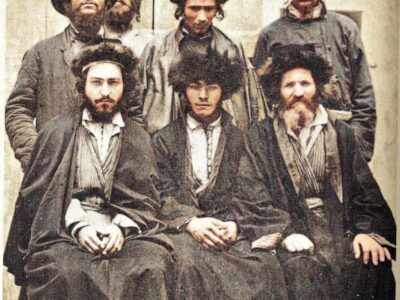As Catherine Dunphy was in the early stages of researching her newly-published biography Morgantaler: A Difficult Hero, Canada’s well-known abortion crusader asked her over lunch if she would like to “witness a procedure.”
A short time later, Dunphy was chatting at Morgantaler’s Toronto clinic with a stripper named Dominique, eleven weeks pregnant, as the doctor injected the patient’s cervix with an anesthetic, the first step of “the procedure.”
Utilizing tools like a tenaculum, Dalsace Sound, cannula and some tapers, Morgantaler worked smoothly as the aspirator made a “low gurgling sound.” As Dunphy and a medical assistant looked on, “blood-covered tissue and liquid were evacuated from (the patient’s) body through the tube into a metal tray.”
Then Henry announced: “I’m happy to tell you you are no longer pregnant.”
Thirty years ago, bored with his former life in suburban Montreal, Morgantaler began to perform this simple medical procedure, simultaneously adopting the pro-choice cause of a woman’s right to abortion on demand as his own personal creed.
It was anything but a simple road. He’s received countless death threats and attacks, such as when a stranger came at him with a pair of gardening shears. His cross-Canada clinics have been raided, set afire, blown up. In 1975 he was imprisoned for 10 months for performing an illegal abortion. With his bearded and unmistakeably semitic profile, he has also been pilloried by anonymous enemies for being Jewish.
Yet right from the start, the iconoclastic doctor decided not to play the role of the old-fashioned backstreet abortionist, working quietly in the vague shadows between morality and legality. Says Dunphy: “Henry said, ‘There’s no way I’m going to be quiet about this. And when I get caught, I’m not going to plead guilty. I’m going to take it right to the top.’“
Ultimately, that’s just what he did. His greatest moment of victory occurred in January 1988, when the Supreme Court of Canada struck down the abortion law, leaving in its place a legalistic vacuum that Morgantaler counts as his greatest achievement.
Born 74 years ago in Lodz, Morgantaler was incarcerated nearly five years in the Lodz ghetto, then briefly in Auschwitz, then Dachau. He lost his father, mother and only sister in the Holocaust. A secular humanist, his untiring battle for women’s reproductive rights is treated as a legacy of his wartime persecution.
Dunphy adequately demonstrates that Morgantaler can be a difficult, egocentric person whose political agendas often ran counter to those of his feminist supporters, some of whom grew weary of perpetually raising money for his legal defense. He has had troubled relations with family members who often went long periods without talking to him.
Dunphy, a feature writer for the Toronto Star, found him a difficult subject on a journalistic level as well. “For a man who loves the spotlight, he’s very private, and it must be scary for him to have so much of himself revealed. He’s accustomed to the attention that a feature newspaper article would give him. I’ve tried to show the human side of him and I’m not sure he’s comfortable with that.”
Does this complex, compulsive crusader genuinely qualify as a hero? Certainly many women he has helped out of their troubles, and many within the pro-choice movement, would quickly say Yes. This book is for them. Others might find this a competent albeit tedious book. A media sensation, Morgantaler certainly deserves his 15 minutes of fame, but a more balanced approach would have focused more on the issues and less on the man. ♦
© 1997






